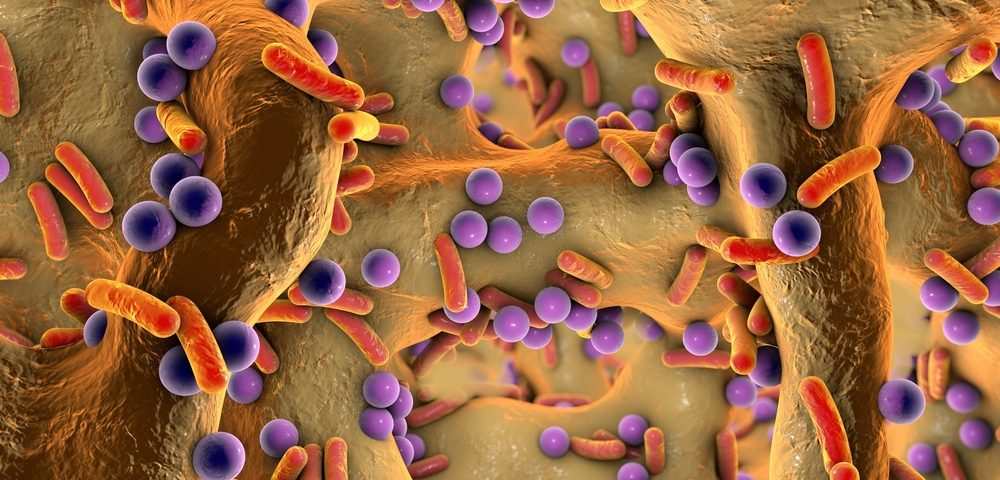Janssen Biotech will conduct a Phase 1 clinical trial in healthy volunteers to test VE202, an investigational oral treatment for inflammatory bowel disease (IBD), Vedanta Biosciences has announced.
In 2015, Janssen bought the rights from Vedanta for VE202, an oral live biotherapeutic product (a treatment consisting of living microorganisms) that contains a curated mix of bacteria usually present in healthy individuals. The launch of the study comes with a payment of $12 million from Janssen — a Johnson & Johnson pharmaceutical company — in milestone payments to Vedanta as part of the companies’ ongoing collaboration.
“To our knowledge, VE202 is the first drug candidate based on a rationally-defined bacterial consortium to enter the clinic for an autoimmune disease. We are pleased to collaborate with Janssen’s team, which has produced several important drugs for people living with IBD,” Bernat Olle, CEO of Vedanta Biosciences, said in a press release.
IBD is an autoimmune condition where the immune system attacks the intestine, causing inflammation. The specific factors underlying the disease are not fully understood. However, it is known that the microbiota — the community of gut microorganisms — of IBD patients is different from that of healthy individuals.
“Current treatments effectively block mediators of inflammation, but they do not address the underlying alterations in the gut microbiota that may be driving the inflammation in the first place, leaving a need for safe approaches that address this aspect of the disease,” Olle said.
Fecal microbiota transplants (FMT), in which fecal material from healthy donors is placed into IBD patients, are an alternative treatment to restore the microbiota balance, but more studies are needed to evaluate the potential of the procedure.
Additionally, FMT is not a long-term solution because it has to be performed with regularity, and its effectiveness depends on the exact composition of the donor microbiota, making the treatment somewhat unreliable.
“Randomized clinical trials of fecal microbiota transplants (FMT) have provided strong evidence for the microbiome’s involvement in inflammatory bowel diseases albeit with varying clinical success depending on the donor used and the frequency of instillations,” said Balfour Sartor, MD, a professor of medicine, microbiology, and immunology at the University of North Carolina at Chapel Hill. “The inconsistent composition of fecal donor material and the need for chronic administration make FMT a challenging modality for treating IBD.”
The rationale behind VE202 comes from studies demonstrating that the kind of microorganisms present in the microbiota could affect the number and activity of white blood cells (immune cells) present in the intestine. The experimental therapy consists of a selected group of bacteria that induce the action of regulatory T cells — immune cells that suppress inflammation.
The treatment is made from pure bacterial clones that are cultured and grown in the laboratory. Therefore, it always has the same composition and is readily available, which reduces the limitations of irregular effectiveness and donor dependence associated with fecal microbiota transplants.
Vedanta Biosciences focuses on developing human microbiota-based therapies to treat immune-mediated diseases. It has identified several bacteria that play critical roles in processes such as infectious and autoimmune diseases, allergies, and immuno-oncology.

